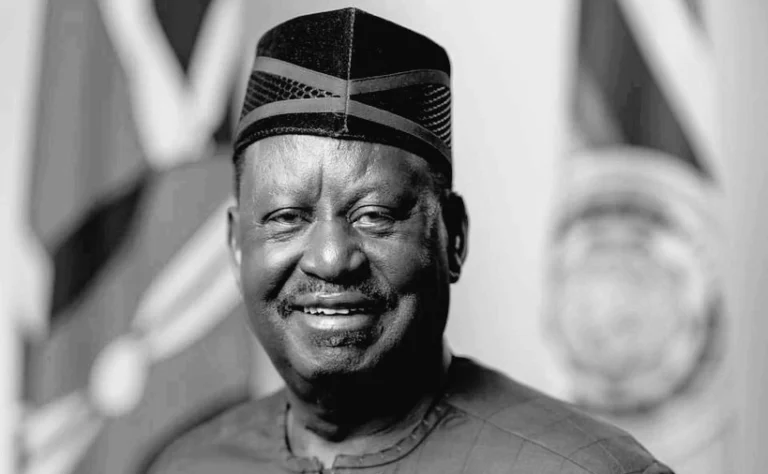Raila Odinga’s profound and often tumultuous engagement with Kenyan politics inextricably linked his persona to the nation’s democratic evolution, making any discussion of a post-Raila era a complex examination of political continuity and potential reform. His legacy is characterized by a persistent advocacy for multiparty democracy, constitutional reform, and electoral integrity, frequently challenging incumbent power structures and experiencing numerous electoral disputes.
Given this deep entanglement, it is highly improbable that Kenyan politics would remain unchanged following his death. Such an event would likely precipitate significant shifts in political alignments, ethnic mobilization, and the trajectory of democratic governance.
Raila’s role defined his career as a leading opposition figure and a contemporary revolutionist, influencing public attitudes towards political leadership and governance in Kenya for years. He consistently challenged what he and his supporters perceived as flawed electoral processes, often appealing to the Supreme Court to overturn results, as seen in the 2013 and 2017. His sustained pressure contributed to increased, albeit sometimes contentious, judicial scrutiny of electoral outcomes, arguably strengthening the judiciary’s role in safeguarding democratic processes. The nullification of the 2017 presidential election results, which Raila pursued, stands as a landmark decision in African electoral jurisprudence, underscoring the judiciary’s capacity to uphold constitutional principles against executive overreach.
Furthermore, Raila’s political discourse frequently employed metaphors of nationalism and revolution, which resonated deeply with segments of the Kenyan populace, fostering a strong sense of collective identity and purpose among his supporters. This ability to mobilize a dedicated base, often along ethnic lines, was a critical aspect of his political influence. Since the introduction of multiparty systems, Kenyan politics has been shaped mainly by ethnic affiliations, with strong personalities like Raila often elevated to represent specific community interests. This ethnic dimension, while fostering strong loyalty, also contributed to intense struggles for the imperial presidency and, at times, localized violence undermining democratic engagement.
In a post-Raila political landscape, several critical lessons and elements should be carried forward for Kenya’s democratic maturation:
One is strengthening electoral institutions and processes. A fundamental lesson from Raila’s political journey is the persistent need for robust, independent, and credible electoral management bodies.
The repeated accusations of rigging and controversies surrounding election outcomes, even in 2022, when Raila was the government-favored candidate, highlights systemic vulnerabilities. Future political leaders must prioritize reforms that insulate electoral commissions from interference, ensure transparent vote counting, and implementing technology to minimize disputes. This would help build public trust and reduce the reliance on individuals to validate results.
Addressing ethnic polarization is another one. The tendency for political parties to be erected on ethnic foundations and for strong personalities to represent tribal interests remains a significant challenge to national unity and stable governance. Kenya should learn to foster political platforms that transcend ethnic divides, promoting issue-based politics over identity-based mobilization. A post-Raila era presents an opportunity to cultivate a political culture where national interests and meritocracy take precedence.
Enhancing judicial independence and rule of law is also critical. Raila’s frequent recourse to the Supreme Court underscored the importance of an independent judiciary as a final arbiter in electoral disputes. Maintaining and further strengthening this judicial independence is crucial for resolving political impasses peacefully and legitimately. Future political actors must uphold the rule of law and respect judicial decisions, regardless of their immediate political implications, to reinforce democratic norms.
Also essential is promoting genuine multiparty competition: While Kenya transitioned to a multiparty system in the 1990s, the struggle for competitive politics against authoritarian tendencies has been ongoing. Raila played a significant role in this struggle. A future political environment must ensure a genuinely level playing field for all the actors, preventing the manipulation of state resources or institutions to favor incumbents or specific candidates. This includes protecting civil society spaces, media freedom, and the rights of citizens to engage in the political process without fear.
Finally is cultivating democratic satisfaction and accountability: When elected officials explain their behavior to constituents, democratic satisfaction is generally promoted. The Kenyan political system needs to institutionalize greater accountability and transparency from its leaders and institutions. This means fostering open dialogue, responsive governance, and mechanisms for citizens to hold their representatives accountable, moving beyond reliance on political settlements as temporary solutions to crises.
In conclusion, Raila Odinga’s significant footprint on Kenya’s political landscape means that any scenario involving his departure would inevitably reshape the country’s dynamics. The enduring lessons from his era point towards a critical need for deepened institutional reforms, particularly in electoral management and ethnic reconciliation, to ensure a more robust and inclusive democracy in future. The political lessons and frameworks established during his long and impactful career will undoubtedly influ/ence subsequent generations of Kenyan leadership.
The writer, Leek Daniel, is a media specialist and development practitioner. He can be reached via email: leek2daniel@gmail.com




